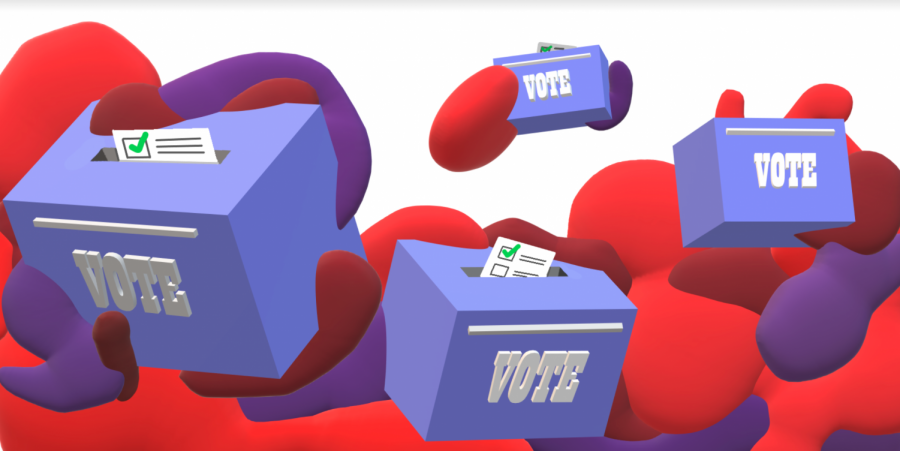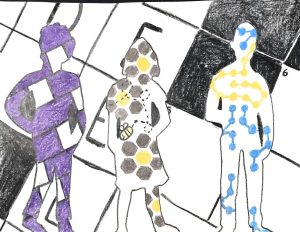Make Our Government Truly by, of, and for the People
February 26, 2021
Plenty of ink has been spilled explaining how America’s system of government is antidemocratic and unrepresentative of the will of the people. The Electoral College and the Senate give disproportionate weight to white, rural voters, who currently skew Republican. Evidently, these institutions are biased towards the GOP by 3.5 and 6.6 points, respectively. After the 2010 midterms, Republicans gerrymandered House and state legislative maps to lock themselves into power. In 2012, the GOP held their House majority despite winning fewer votes than the Democrats, and in 2018, Wisconsin Republicans won 63 out of 99 seats in the State Assembly, despite Democrats winning 54% of the vote. The Senate is currently split 50-50, even though Democrats represent 41.5 million more people (that’s over a quarter of those who voted in the 2020 election). Clearly, our system of government is broken. Here’s how we can fix it.
In 2016, Donald Trump won the presidency despite losing the popular vote by millions, and came within 43,000 votes in battleground states of doing the same in 2020. While the Electoral College is currently biased in favor of Republicans, that hasn’t always been the case. If 180,000 Ohioans had voted differently in 2004, John Kerry would have been the 44th president. Instead of this arcane and antidemocratic system, America should elect its presidents by popular vote. A Constitutional amendment is unlikely to pass in the face of Republican opposition. But there is another way: the National Popular Vote Interstate Compact. This is a proposal that states collectively allocate their electoral votes to the winner of the national popular vote, taking effect only when the signatories of the agreement have enough electoral votes to decide the outcome of the presidential election.
We also need to rebalance the Senate, which over-represents white and Republican voters. We can start by granting statehood to Washington DC, whose citizens are subject to federal taxation but lack Congressional representation, and to Puerto Rico, which approved a nonbinding referendum on statehood last year. Doing so would reduce the racial and partisan skew of the Senate, but we can go further. Populous blue states like California, New York, and Massachusetts could be split up to counter the influence of small red states. There is precedent for adding new states to change the partisan balance in the Senate—Lincoln and the Republicans did so after the Civil War—and in this case the new states would remove an existing partisan bias, not create a new one in the opposite direction.
Tom Hoffeller quipped that “in redistricting, the politicians get to pick the voters.” Hoffeller was a mapmaker hired by the GOP to draw districts in North Carolina, maps that were later struck down by the Supreme Court as racial gerrymanders. All across the country, Republicans have used gerrymandering to pervert democracy, allowing them to win a majority House in 2012 and a near-supermajority in the Wisconsin Assembly in 2018, despite losing the popular vote in both cases. When in power, Democrats have been just as aggressive—having gerrymandered maps in Georgia in 2001, and Illinois and Maryland in 2011. There’s a deeper problem in our politics: the two-party duopoly, which forces people with views as different as Joe Manchin and Bernie Sanders or Charlie Baker and Ted Cruz to be members of the same parties. This is due to our electoral system—single-winner plurality, also known as “first past the post.” Under such a system, a candidate who has the most votes but falls short of a majority in a three-way race will win office, even if the other two ideologically similar candidates’ combined support constitutes a majority (the “spoiler effect” was notably seen in the 2000 presidenital election in Florida). Thus, Duverger’s law holds that first past the post voting will result in a two party system, even if such a system does not properly capture the ideological diversity of the body politic.
Fortunately, ranked choice voting can solve both problems: it ensures that the winner of an election actually commands the support of the majority of voters, better captures the nuanced views of the people, and forces candidates to appeal to those outside their base. In a proportional representation system, if one party wins 45% of the vote, it will get approximately 45% of the seats, making gerrymandering obsolete. Ranked choice voting can also be used for this purpose, under a system called the single transferable vote. This system is already used in Cambridge for City Council and School Committee elections, and it produced fairly proportional partisan results in the 2020 Irish general election.
There’s already a bill for that: the Fair Representation Act, which would transition all House elections to a single transferable vote system. This would negate any attempts at gerrymandering, cement that the views of all people are fairly reflected in Congress, and encourage bipartisanship by ensuring that Democratic and Republican members of Congress would have to appeal to each other’s voters.
Finally, we need to take power out of the hands of billionaire ideologues, corporations, and lobbyists and return it to the people. First, we need a Constitutional amendment to overturn Citizens United, a 2010 Supreme Court decision that allowed corporations and other outside groups to spend unlimited sums of money influencing elections, claiming that restrictions would violate the groups’ right to free speech. Since the ruling, super political action committees and dark money (political spending by nonprofits that do not disclose their donors) have flooded elections, with expenditures of the latter going from $5 million in 2006 to $300 million in 2012. Even without Citizens United, the wealthy would still have an outsized voice in politics. That’s why we need public financing of elections, specifically small-dollar matching programs also known as “democracy vouchers.” This program would give every voter a voucher for they could donate to candidates of their choice in primary and/or general elections for president or Congress. Vouchers would level the playing field between billionaires like Tom Steyer or the Koch brothers and average Americans, while allowing candidates without support from the establishment or wealthy donors and corporations to be competitive.
Democracy reform is popular too: the For the People Act (H.R.1) is supported by 67% of Americans, including majorities of Democrats, Republicans and independents.
Congress should move quickly to pass H.R.1, the Fair Representation Act, and a bill granting statehood to Puerto Rico and Washington DC. If that requires eliminating the filibuster, then so be it. In the Gettysburg Address, Abraham Lincoln urged Union soldiers to keep fighting so that “government of the people, by the people, for the people, shall not perish from the earth.” The Trump presidency showed us the deep and enduring flaws in our democracy. Our government is too often controlled by a minority of voters, too easily captured by special interests, and too deeply divided between two big-tent political parties that don’t reflect our nation’s diversity of views. It’s time to build back better.










